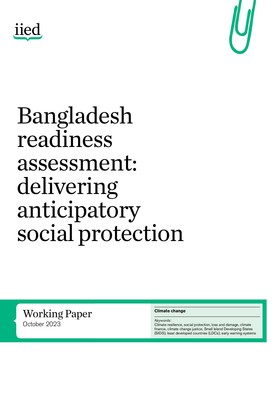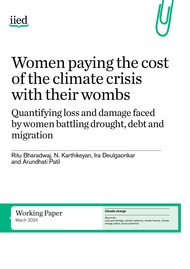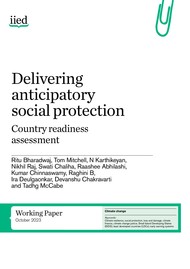Bangladesh readiness assessment: delivering anticipatory social protection

This study uses the ASPIRE tool to evaluate the readiness and effectiveness of social protection systems in Bangladesh, identifying gaps and opportunities to improve anticipatory measures and climate resilience.
The analysis shows that the National Social Security Strategy of Bangladesh shows commendable ambition in creating a comprehensive social protection framework aimed at addressing the needs of the most vulnerable populations. It employs a lifecycle approach to target various risks and includes international donor support for its financial infrastructure. However, it faces several challenges including an absence of contingency funds for anticipatory risk financing, flawed targeting mechanisms that leave many vulnerable individuals uncovered, and institutional coordination issues across various stakeholders.
Additionally, the policy has made some strides in integrating disaster risk financing but falls short in effective anticipatory action and full-scale private sector engagement. While there are digital platforms in place for better programme implementation, there is a lack of climate-smart and EWSs. The overall effectiveness of social protection measures is constrained by several weaknesses, including ineffective local committees, poor multi-stakeholder coordination, and a low share of GDP spent on social protection.
Cite this publication
Available at https://www.iied.org/21911iied






